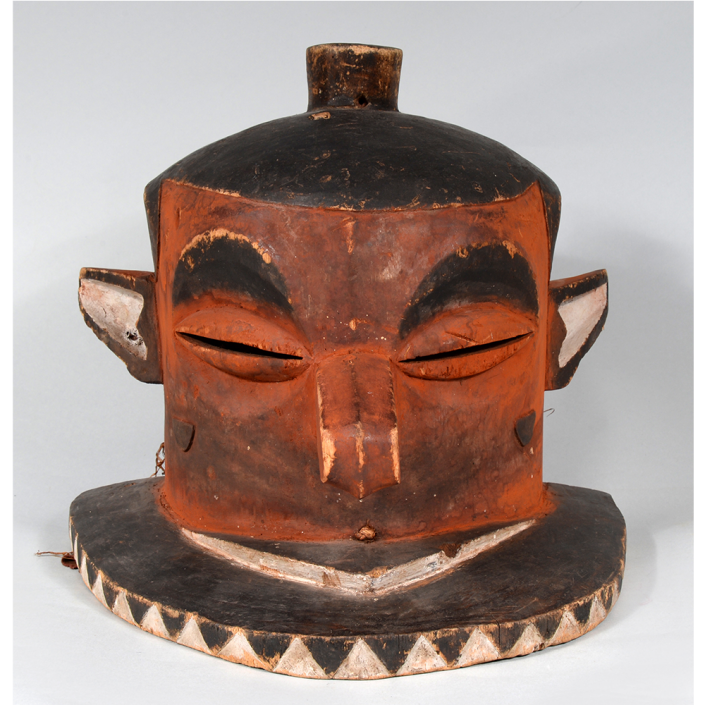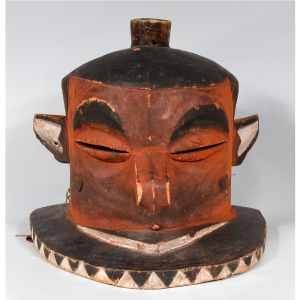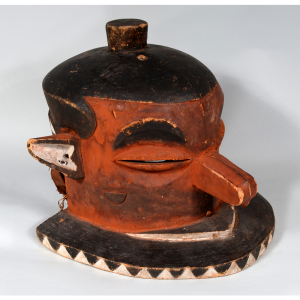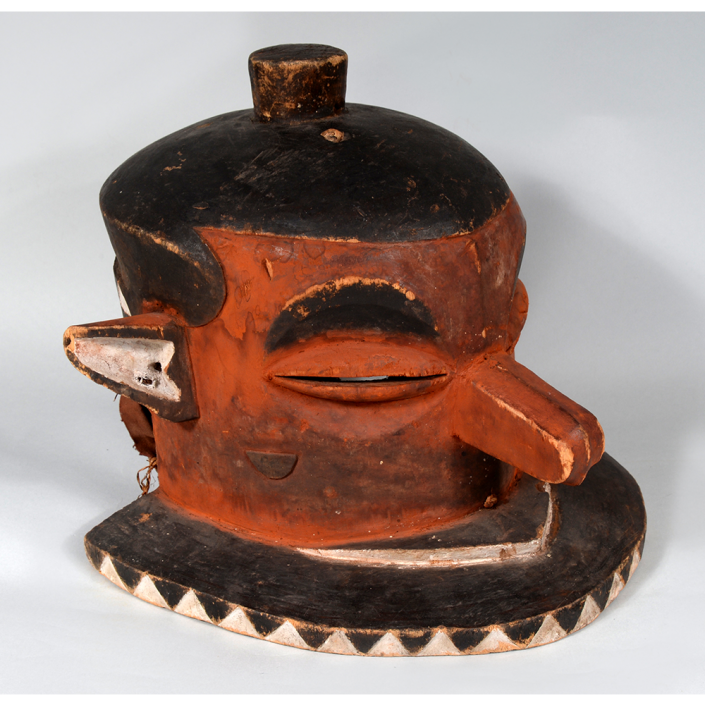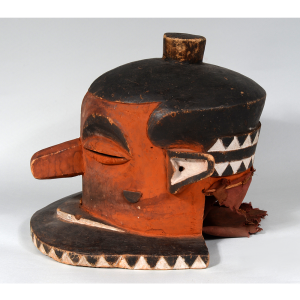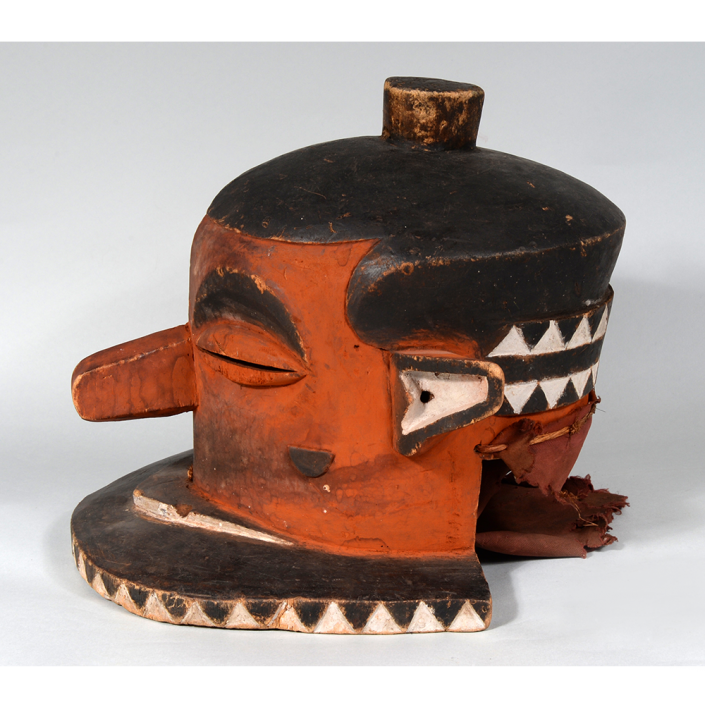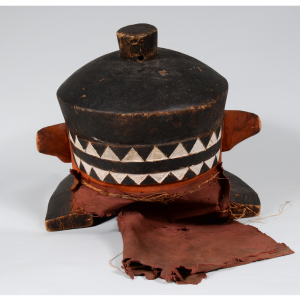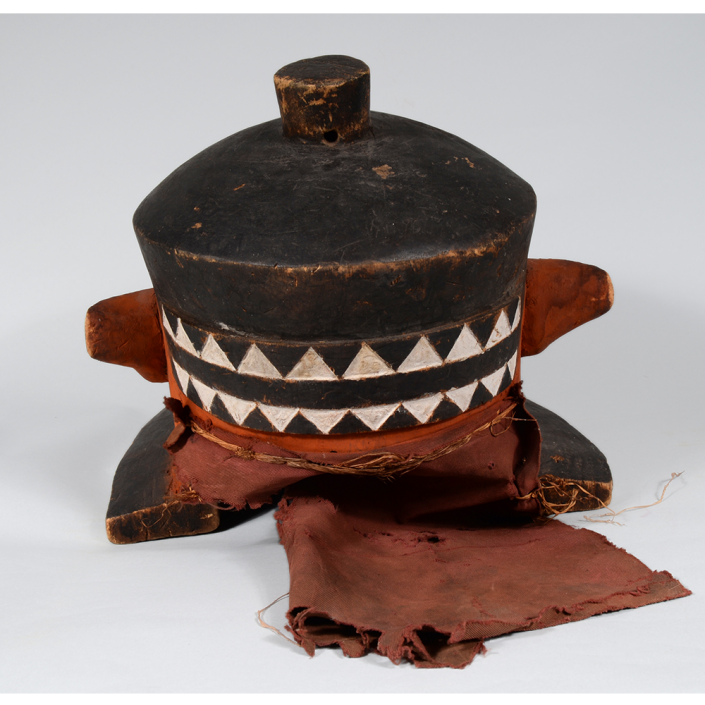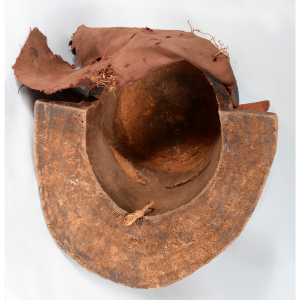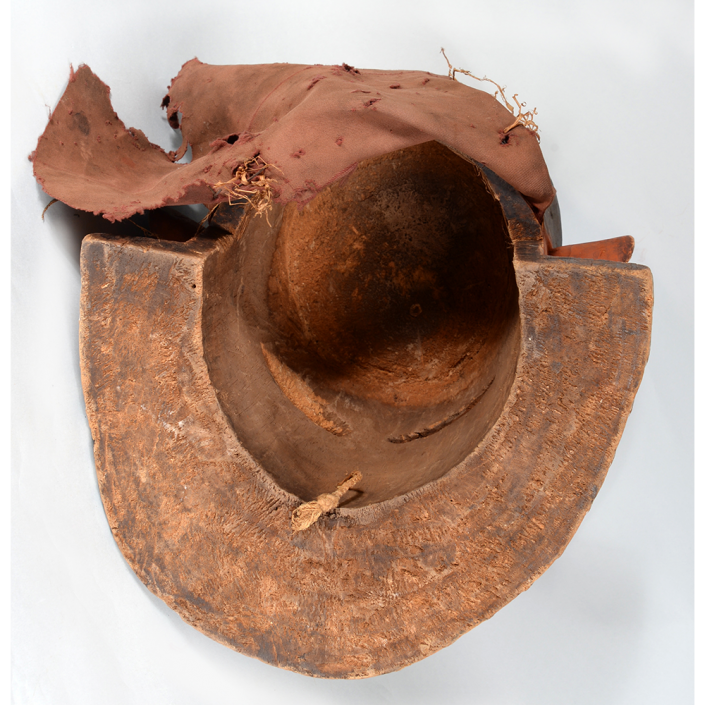TITLE: Pende Giphogo (Kipoko) Mask
TYPE: helmet mask
GENERAL REGION: Africa
COUNTRY: Democratic Republic of the Congo
ETHNICITY: Eastern Pende
DESCRIPTION: Giphogo (Kipoko) Mask
CATALOG ID: AFCD011
MAKER: Unknown
CEREMONY: Mukanda / Lukongo Dance
FUNCTION: Adult Initiation; Protection; Purification; Social Control; Spirit Invocation; Status
AGE: ca. 1980s
MAIN MATERIAL: wood
OTHER MATERIALS: cloth; string; pigment
The Pende people have many different kinds of masks they wear, especially at adult initiation rituals and funerals. The word giphogo (or kipoko) means “sword wielder” and is a symbol of power among the Eastern Pende. The mask is kept in the chief’s home, and only chiefs are allowed to authorize dance with this type of mask on the occasion of initiations and rituals of the ancestor cult of the Eastern Pende. It represent the village chief as intermediary between the living and the dead, and its uses include protection from evil spirits; prayers or thanks for successful harvests and tribal fertility; to identify and punish sorcerers; and adult initiation during mukanda rituals. The dance is called Lukongo among the Eastern Pende. The masquerader carries one or two flywhisks made of animal hair, which are used to mimic agricultural work or to purify the village grounds. As the kipoko dances, he mimics the daily tasks of village women, meanwhile flicking the ground with the whisks and making semicircular kicks to protect the village against evil spirits or sorcerers, to purify disease and sterility, and to quiet discord. Every Eastern Pende boy must learn the Lukongo dance to be initiated into the men’s fraternity.
For more on Pende masked dances, see Z.S. Strother, Inventing Masks: Agency and History in the Art of the Central Pende (University of Chicago Press, 1998).
